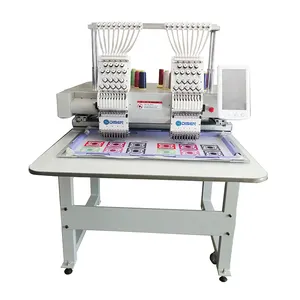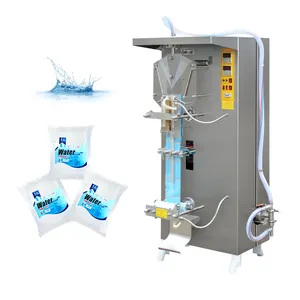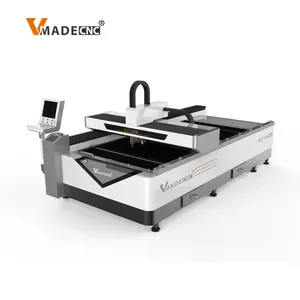Popular in your industry














































































































































































Top categories
About stage incubator
A stage incubator is an advanced apparatus engineered to generate and sustain exact environmental conditions necessary for the cultivation and examination of biological cultures. It plays a pivotal role in a multitude of scientific disciplines, allowing for the manipulation and observation of live cells directly through a microscope. The stage top incubator is specifically crafted to meld with the microscope stage, enabling the continuous scrutiny of biological phenomena.
Types and Characteristics of Stage Incubators
There exists a diversity of stage incubators, each tailored with distinct features to meet varied research demands. The Okolab stage top incubator is celebrated for its intuitive interface and superior temperature management, whereas the Tokai Hit stage top incubator is preferred for its sturdy construction and meticulous moisture control. Specialized on stage incubators cater to particular fields such as IVF or neuroscience, where the regulation of CO2 and O2 concentrations is paramount. Each variant of incubator stage brings its own merits, be it in energy conservation, compactness, or the breadth of conditions they can replicate.
Structure and Operation of a Stage Incubator
The intricate architecture of a stage incubator comprises several integral elements. At its heart lies a temperature control mechanism, frequently employing Peltier elements for heightened precision. Gas mixers are in place to ensure appropriate CO2 and O2 levels, while humidity is modulated through either a water reservoir or a humidity pump system. These components are synergistically governed by a central PLC to maintain a consistent internal milieu. For instance, the Okolab cage incubator features a transparent chamber, offering clear visibility while preserving the internal atmosphere.
Materials and Properties
The selection of materials for a stage incubator is crucial to its function and durability. Stainless steel is a common choice due to its thermal resistance and ease of sanitation. ABS and PC plastics are utilized for their robustness and insulating capabilities, vital for temperature uniformity. The incorporation of color steel plates in certain models adds a durable and visually pleasing exterior. Each material is carefully chosen not only for its physical attributes but also for its suitability to the rigorous standards of biological experimentation.
Business Usages and Applications
Stage incubators are vital across various commercial landscapes. Within the pharmaceutical realm, they are instrumental for drug discovery and assays. Biotechnology firms depend on them for endeavors in tissue engineering and regenerative medicine. Academic institutions employ them to further research in cellular biology and genetics. These devices are equally critical in agricultural research for examining plant cells and facilitating in vitro fertilization of livestock. The microscope stage incubator has transformed these sectors by permitting ongoing observation, thereby catalyzing breakthroughs in research and product innovation.
Functional Advantages of a Stage Incubator
The primary purpose of a stage incubator is to emulate the in vivo conditions essential for cellular proliferation and differentiation. This encompasses maintaining a stable temperature, imperative for enzymatic reactions, and precise gas concentrations for optimal pH balance. The incubator stage also permits the alteration of these conditions to mimic various environments, facilitating the exploration of cellular reactions to stress or homeostatic shifts.
Features and Unique Selling Points
A distinguishing feature of a stage incubator is its compatibility with sophisticated microscopy techniques, such as time-lapse imaging. For example, the Okolab incubator is noted for its vibration-free operation, essential for high-resolution imaging. Another notable attribute is the dual power supply option present in some models, guaranteeing that experiments proceed without disruption during power outages. These characteristics differentiate them from conventional incubators and render them a top selection for state-of-the-art research.
Benefits and Problem-Solving Capabilities
The advantages of employing a stage incubator are numerous. They ensure a controlled setting for delicate experiments, diminishing the likelihood of sample contamination and loss. This control is key to experiment reproducibility, a fundamental aspect of scientific inquiry. By fulfilling the exacting demands of live-cell imaging, these incubators address the challenge of observing dynamic biological processes in real time, which is crucial for elucidating disease pathways and evaluating potential therapies.
How to Use and Maintain a Stage Incubator
Optimal use of a stage incubator entails configuring the desired settings via the control interface, which may differ among models such as the Okolab incubator and the Tokai Hit incubator. Routine upkeep involves cleansing the interior, calibrating sensors, and verifying the integrity of seals and gaskets. Adhering to the manufacturer's instructions is essential during installation to ensure correct alignment with the microscope stage and peak performance.
Target Audience and Meeting Needs
The intended clientele for stage incubators spans research scientists, laboratory technicians, and quality assurance experts in sectors from biotechnology to agriculture. Each device, be it the Okolab cage incubator or the Tokai Hit stage top incubator, is conceived with the user's requirements in mind, guaranteeing that it satisfies the specific demands of diverse research settings and applications.
What are the key selling points of a stage incubator?
The key selling points of a stage incubator encompass its capacity to maintain a regulated environment for sensitive biological processes, its versatility in accommodating various cell culture methods, and its contribution to high productivity through stable and precise conditions. Energy efficiency and safety features also stand out as significant selling points that resonate with a broad spectrum of professional users.
What after-sales services are available for stage incubators?
After-sales support for stage incubators typically includes online assistance, video technical support, and access to engineers for servicing and repairs. Certain manufacturers may provide on-site maintenance and repair services to ensure their equipment's optimal operation. It is advisable to consult with the specific supplier on Alibaba.com for the range of services offered.
How does a stage incubator contribute to research and development?
A stage incubator is indispensable in research and development, playing a key role in preserving the viability of cell cultures and biological specimens. It facilitates extended studies and microscopic observations, contributing to progress in areas such as oncology, regenerative medicine, and developmental biology. The accuracy and consistency of a stage top incubator are vital for the dependability and reproducibility of experimental outcomes.




































































